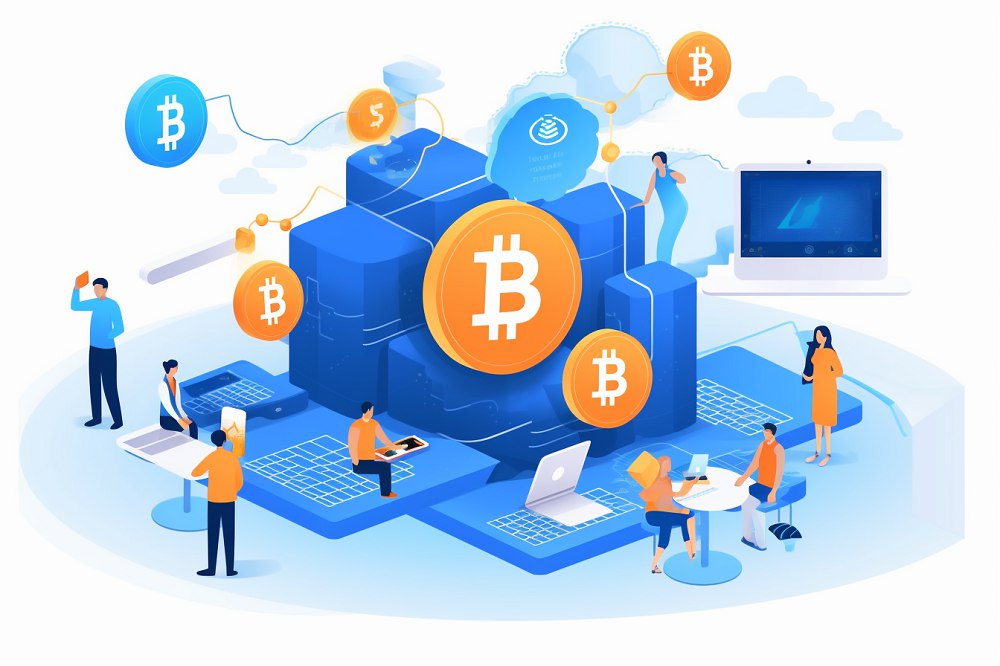A new wave of crypto enthusiasts in India is fueling the rapid adoption of digital currency. Crypto and Web3 were the subjects of a worldwide poll conducted by YouGov and Consensus.
The report revealed that 32% of Indians had bought cryptocurrency, and of the digital coins bought, Bitcoin was the most popular. India’s stance on cryptocurrencies has remained the same, with the country’s 30% tax on digital asset profits.
The analysis by KuCoin predicts that by 2030, the digital asset market in India will be worth $241 million. India, home to over 1.4 billion people, is quickly becoming a major center for cryptocurrency investors. This guide explains the best ways crypto enthusiasts and traders can purchase Bitcoin in India.
Purchasing Bitcoin On Centralized Crypto Exchange In India
Many centralized exchanges, whether domestic or international, serve many people in India interested in purchasing Bitcoin. Each platform’s ease of use, security, and cost-effectiveness should be your top priorities.
Steps such as email and phone number verification are part of the exchange registration process. Subsequently, the Know Your Customer (KYC) procedure authenticates identification documents.
Two primary ways to buy Bitcoin through a centralized exchange are OTC and P2P trading. The minimum order size for over-the-counter transactions is usually {$100. Examples of such platforms include CoinDCX, which has a minimum order amount of 15,000 USDT or 12,00,000 INR (whichever is lesser).
The opposite is true with WazirX OTC Desk, which handles cryptocurrency volumes beginning at $50,000. Alternatively, one can acquire smaller BTC denominations through the peer-to-peer (P2P) approach. As the buyer and seller intermediary, the exchange’s responsibility is to ensure transaction transparency.
Buying Bitcoin On A Decentralized Exchange
By relying on user inputs to power peer-to-peer transactions, decentralized exchanges (DEXs) eliminate the need for centralized authorities. Also, direct blockchain transactions between users through these exchanges eliminate intermediaries and offer lower trading fees than centralized platforms.
More importantly, DEXs do not keep user funds; thus, users fully own their digital assets. While a cryptocurrency wallet connection is required to use a DEX, buying Bitcoin using fiat money is not an option. Bitcoin can only be acquired by exchanging it for another cryptocurrency.
Note that DEX transactions are not required to adhere to KYC procedures. Also, DEXs do not yet offer fiat-to-crypto purchasing options. They provide decentralized trading through smart contracts, giving customers authority over their assets.
How To Initiate P2P Crypto Transactions In India
Both on-exchange and off-exchange solutions are available for direct peer-to-peer crypto trading. After signing up and completing KYC procedures, users can utilize the platform’s P2P service to initiate transactions with other users. Funds are kept in escrow until both sides agree and finalize the transactions.
Buying and selling off-exchange, or OTC, requires finding reliable parties to do business with, usually through personal connections or intermediaries, and then reaching an agreement on terms directly. Cryptocurrency is transferred to the recipient’s wallet through bank transfers or digital wallets. Regardless, approaches require following local rules and putting security first.
How To Pay For Crypto Transactions In India
Some accepted payment methods by crypto exchanges include bank transfers and debit/credit cards (via the Unified Payments Interface and Immediate Payment Service). To make transactions more flexible, sellers in P2P trades might accept conventional Paytm or Lightning UPI.
These sites can accept several non-traditional payment methods for Bitcoin transactions. Crypto assets such as Cardano (ADA), Polkadot’s DOT, and Ether (ETH) are accepted by buyers. Still, sellers frequently use stablecoins like USDT or USD Coin (USDC). It should be noted that purchasing Bitcoin using PayPal is not an option in India at the time of writing.
How To Store Bitcoin
Desktop, mobile, web, hardware, and paper wallets are some of the Bitcoin storage choices available. The problem is that the exchange, not the buyer, owns the Bitcoin if they choose to leave it with an exchange.
Bitcoin can be safely stored offline in hardware or paper wallets, which are impenetrable to theft, but keeping the private key and the wallet highly secure is crucial. Using mobile wallets, users can access and spend their Bitcoin whenever and wherever they like.
Online and desktop wallets provide the same level of security as exchanges. There are two types of wallets: custodial and non-custodial. However, users cannot access their private keys when using a custodial wallet because a third party holds their funds.
In contrast, non-custodial wallets provide complete independence and security by letting users keep their private keys and assets.
Conclusion
Buying BTC or any other digital asset in India requires following the rules and complying with crypto platforms’ guidelines.
